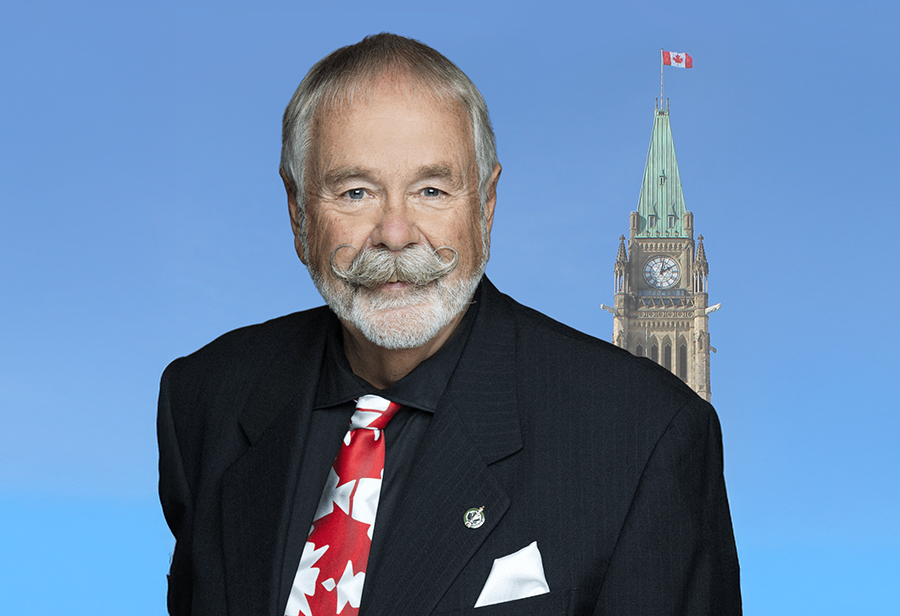Financial Influencers – Explosion of questionable advice on social media comes with big risks for young Canadians

Angela Amato, Bethany Lindsay, Zak Vescera
Local Journalism Initiative Reporters
Starting in 2020, James Floreani began dispensing financial advice on multiple social media platforms, eventually attracting tens of thousands of followers.
But was he telling those followers the whole story about every stock he discussed?
Last year, the Alberta Securities Commission (ASC) accused Floreani of breaching the Alberta Securities Act. The commission says Floreani, an Alberta resident who made financially focused social media content under the name “Jayconomics Inc.,” had promoted the stocks of four companies on his channels without fully disclosing to his viewers that those companies had paid him thousands of dollars for the advertisements.
In a post on his YouTube channel in April 2022, Floreani admitted he needed to be “a lot more careful” in his phrasing and how he presented information about money-making opportunities.
“A lot of my viewers, like it or not, are beginners. They’re not advanced investors. … I have to be cognizant of that and really break things down in a way that really shows both sides of the coin,” Floreani said in the video. “I need to be 100 per cent transparent — I feel like I have been — but I feel like I need to communicate that in a better way.”
Jayconomics is just one social media account among others run by hordes of financial influencers, known as finfluencers, who have sprung up around the world on social media in the last decade.
More and more Canadians — especially young people — are taking investment advice from social media.
That has Canadian securities regulators struggling to figure out what to do about finfluencers, who they say are not always upfront about what they’re promoting and why. Hilary McMeekin, director of communications and investor education at the ASC, said the commission is seeing an increasing number of young people seeking financial advice from social media personalities as opposed to traditional modes like meeting with a financial advisor.
“Not all investment advisors are willing to work with people who have smaller portfolios,” McMeekin said in an interview. “Social media becomes a really easy environment to get information without having to try and make those connections.”
While regulators like the ASC are still working out the best way to address this burgeoning industry of online financial advice, experts say comprehensive action is necessary to protect regular people trying to optimize their investments.
“I think that this needs to be taken more seriously by everyone,” said Errol Osecki, an accounting professor at the University of Ottawa researching finfluencers. “It tends to get dismissed because it’s like, ‘It’s a YouTube video, who cares? I’m not that dumb. I wouldn’t fall for that.’ But people do — every day.”
‘You feel like you know them’
Surveys suggest “finfluencers” are having a real effect on how Canadians — especially those in younger generations — invest their money.
A 2024 survey from the Canadian Securities Administrators (CSA) found more than half of Canadians used investment advice they found online, particularly through social media websites like YouTube or Facebook. The proportion was even higher among young Canadians. A staggering 82 per cent of respondents aged 18 to 24 said they had taken advice from social media.
In fact, Gen-Z Canadians are even more likely than their counterparts in the U.S., U.K. and China to get their financial advice from social media, according to an international survey conducted in 2023.
And these investors put a lot of stock into advice from finfluencers. A separate 2024 poll from the Canadian Investment Regulatory Organization found 44 per cent of Canadians felt the advice they got from social media, forums or finfluencers was “equally valuable” as advice from a registered financial advisor. Twelve per cent felt it was actually “more valuable.”
Osecki is still in the early stages of studying the finfluencer phenomenon, but he has a sense of why many people find advice from finfluencers to be appealing.
“They kind of substitute for word of mouth,” he said. “These are people that you don’t really know, but you feel like you know them. You listen to a podcast for a while and all of a sudden you feel like you’re friends with the people, even though you haven’t really ever met them.”
But unlike getting a stock tip from a lifelong friend or an uncle, few investors have the necessary context to understand how trustworthy a finfluencer’s advice might be.
“You can’t tell the stuff that is genuine and thought out and researched from the stuff that’s just pure bullshit, for lack of a better word. It can be really tough to distinguish between those things, especially if you’re someone who doesn’t have a base level of financial literacy to begin with,” Osecki said.
‘You get blamed for people losing money’
In his April 2022 video, Floreani suggested that his advice could have a positive impact for his followers when the market is up, but when it’s down, it could have the opposite effect.
“A lot of people take responsibility and accountability for their choices and some don’t,” he said in the video. “And then, of course, certain allegations come out and … you get blamed for people losing money, saying that you’re pumping something for your own benefit … which is honestly quite ridiculous.”
In an ASC hearing on Feb. 10, a panel heard that by the time the securities commission began investigating Floreani and Jayconomics, his YouTube channel had more than 50,000 subscribers. His videos had received thousands of views and hundreds of comments.
The ASC presented evidence that between November 2020 and March 2022, Floreani made posts on X (formerly known as Twitter), Patreon, Discord, Instagram, Facebook, YouTube and LinkedIn to promote the stocks of Gold Mountain Mining Corp., Sekur Private Data Ltd., Levitee Labs Inc. and Tenet Fintech Group Inc.
One video made for Tenet included a disclosure that it had been produced on behalf of that company, but it was not made “clearly and conspicuously” as required by the law, according to a notice of hearing from the securities commission. Floreani did not make similar disclosures for any of the other content at issue during the hearing, the ASC said.
Invoices in an agreed statement of facts presented to the panel show Floreani accepted 20,000 restricted stocks from Gold Mountain as payment for the ads, and was paid $84,000 by Levitee Labs and $6,300 by Sekur Private Data. The dollar values of any payments from Tenet Fintech, formerly Peak Fintech, were not mentioned during the hearing.
Floreani did not respond to the IJF’s request for comment before deadline. The hearing into his activity has now concluded, and the panel has not indicated when it will return with a decision on whether he broke the law.
‘Very reckless financial advice’
There have been some high-profile investigations into financial advice from influencers in the U.S. in recent years. Kim Kardashian, for example, settled with the Securities and Exchange Commission for US$1.26 million in 2022 after she promoted a cryptocurrency asset without disclosing the payment she’d received.
Similar cases are starting to pop up in Canada as well.
In 2023, a B.C. Securities Commission panel ordered a Vancouver-based marketing company and its CEO to pay $75,000 after determining they’d hired “finfluencers” to promote stocks online without disclosing they were advertisements.
Those advertisements, the commission said, involved dozens of influencers on popular social media sites including LinkedIn, Facebook and X, then known as Twitter, as well as investment-specific sites like iHub.
According to CSA spokesperson Ilana Kelemen, securities regulators in jurisdictions across Canada have adopted rules against misleading disclosures in promotional activities, including those by social media influencers. The penalties can range from fines to potential criminal prosecution for fraud.
A lack of disclosure is one major issue Richard Coffin has seen in his surveys of the financial influencer world. Coffin is an Ottawa-based investment analyst who runs his own YouTube channel, The Plain Bagel, offering education on finance and investing and digging into the dark side of finfluencers.
“The troubling stuff often comes with individuals who go to the extent of providing very explicit financial advice, often focusing on areas of securities selection, cryptocurrency picks and things of that sort,” Coffin told the IJF in an interview. “Those areas entail a high degree of difficulty and therefore require a higher degree of expertise.”
That expertise is something that many consumers of finfluencer content lack, he noted, adding that beginner investors are also more likely to be drawn to promises of quick and easy wins.
“You can get into very reckless financial advice, especially when it comes to entrepreneurial stuff — people suggesting you go heavily into debt, buying multiple properties on a very thin budget,” Coffin said.
Unfortunately, he added, social media algorithms tend to reward eye-popping promises of financial returns, so the most risky content tends to rise to the top.
But it’s not all bad news.
“It’s come to play an important role, especially with the younger audiences, in terms of getting people involved with investing,” Coffin said. “It can have a positive influence there as younger investors get to learn more — quicker and earlier on.”
Inoculating investors against shady content
The popularity of finfluencers is raising questions about whether stricter laws and regulations need to be implemented. Coffin pointed out that in Australia, for example, anyone offering financial advice online now needs to be licensed.
“It does crack down on the really bottom-of-the-barrel type of content. On the other hand, it kind of inhibits the higher-quality stuff from getting to market,” he said.
Osecki argues that targeting finfluencers directly is a good place to start, but to properly address the problem, online platforms need to be held accountable for the content they host. He compared it to laws targeting adult websites for hosting so-called “revenge porn.”
“I don’t think anything is going to happen unless they put the liability onto the provider, not just the creator,” he said.
Ultimately, though, education might be the best protection against dodgy financial advice.
“What we really need to do in terms of actually combating this is to give people a base level of financial education, because that’s the only way you can inoculate them against this overwhelming stream of who knows what,” Osecki said.
For now, McMeekin of the ASC says anyone coming across this content should check to see if the person sharing information is registered to give financial advice and if they’re being paid.
“If you’re getting sold something through social media, I would pause, because to me that is a red flag,” McMeekin warns. “Most legitimate investment opportunities don’t come through social media or WhatsApp or text messages. That’s not how legitimate investments work, even if it’s a private investment.”
Angela Amato, Bethany Lindsay, Zak Vescera
Local Journalism Initiative Reporters
Investigative Journalism Foundation






